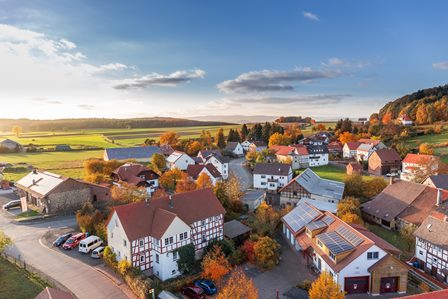
I just got through giving a “Thumbs-Down” review to a client interested in buying a particular house. And it is never just one flaw which would make me dissuade a potential buyer. With one of the flaws I was describing to the client, the corner angle of the house across the street creates a poison arrow which is directed at the house my client is interested in and this can cause mishap. I later edited my response to include “mishap to the occupants” since I realized that the client might otherwise assume I meant a literal mishap to the house itself.
That made me think about how negative things can in fact happen to the very structure of a house and the impact to the occupants might be secondary. We sometimes see the Feng Shui “short-hand” description of a house being “bad for money” or a house being “bad for health or fertility” and of course the implication is for the occupants of the house and not an inanimate object such as a dwelling.
We could debate whether anything is really inanimate, but for the sake of my main point, I have seen it where the house itself will fall victim to bad Feng Shui. One example could be a fire in a building that is not occupied by anyone yet. Another example might be an unoccupied building broken into or defaced or when we hear about a car crashing into a house. The occupants might not be injured at all, but the secondary influence is that they have a big expense of repairs to deal with.
I’ve seen a fair share of houses right up against the freeway or across the street from a freeway exit that were more dilapidated than the houses not in such close alignment. And a whole other huge separate topic is the haunted house, whether or not it is occupied by any humans. For some reason, I was able to visit underground tombs in China without being bothered much, but I could not stand being at the Coliseum in Italy for more than a few minutes. These are examples of Feng Shui energies and influences which transcend the typical built structure.
Often, in classical Feng Shui, we are directing our focus with the unseen magnetic field inside a house, captured and contained for the most part, by the walls, flooring and ceiling. We are also concerned with exterior influences, be they natural or man-made. One example might be the influence of a stone wall with a crack in, in relation to the houses around it. But the very essence of the house itself may display the influences of bad Feng Shui.
A seemingly non-physical example is the house in a Locked Phase. I’ve written other articles about the Locked Phase in detail. The People Lock could make an unoccupied house harder to sell. The Money Lock of an unoccupied place could also make it harder to sell. This suggests that there is an energetic link between the house and owner, even when they do not live there or are gone for long periods of time. And there are Feng Shui applications which address this phenomenon.
Most of the time I assure my clients that they will not be much influenced by a house they own, but do not live in, such as a rental property. Even though this is mostly true, if we believe that everything affects everything, then we are all connected, even in remote ways we may not understand. This lends itself to notions within a whole separate branch of classical Feng Shui called “Yin House,” which is about the direct influence a grave site has on up to three generations of family descendants.
Author: Kartar Diamond
Company: Feng Shui Solutions (R)
from the Feng Shui Theory Blog Series
